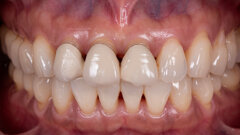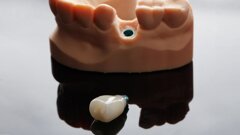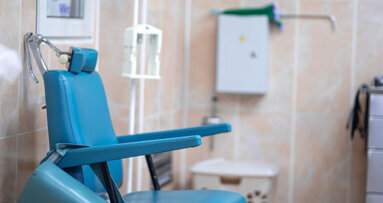WELLINGTON, New Zealand: Across the world, the dental systems of developed countries continue to deteriorate, leaving increasing numbers of ordinary citizens with failing or critical oral health. Typically driven by increasing costs, opportunistic price gouging, meagre government funding and personnel flight, these dental health crises have become major political issues, particularly in countries like the UK. Although New Zealand is not generally included in such discussions, ongoing research portrays the country’s dental system as unstable and as an enormous, but as yet largely unrecognised, economic and social burden.
Following on from a report published in 2022, which revealed the disturbing fact that 40% of adults in the country could not afford dental care, a figure which rose to over 50% for those in the Māori and Pacific communities, a report published this month has exposed the extensive economic consequences of the ailing system. Commissioned by universal dental care coalition Dental for All, the report makes it clear that, when people are unable to seek dental treatment because of financial constraints, the ongoing pain and discomfort that they experience often wreaks havoc in their lives.
Speaking on this point to Radio New Zealand, Dr Hugh Trengrove, an Auckland-based public health dentist, explained how poor dental health may have not only personal repercussions but also wider societal impacts. He said: “It impacts your ability to sleep, to eat, to function daily, and it will certainly have an impact on your productivity.”
Dr Trengrove continued: “If you’ve got a toothache, even if it’s a transient background toothache, it will impact your ability to work, and also impacts your social interactions and your ability to engage with people. And if you’re in a work environment, there’s certainly productivity effects with that.”
The report goes further in showing how, multiplied across the entire adult population, the cumulative result of these individual pathologies is a substantial societal problem. Using a range of literature and statistical information, the report found that the current system was costing NZ$2.5 billion (€1.4 billion*) per year in lost productivity and NZ$3.1 billion in lost life satisfaction or quality of life.
The arguments for and against the government provision of universal dental care invariably turn on the question of cost. Is it more expensive for the government to establish a robust dental care system that supports a healthy population or to continue to privately outsource this care at a prohibitive cost, thereby damaging the health of citizens and of the economy as a whole. The socially ethical answer is painfully obvious.
The report, titled The Social, Economic, and Fiscal Costs of the Current Settings for Adult Oral Health. Adult Oral Health in Aotearoa: The Costs of Inaction?, was published in November 2024.
Editorial note:
* Calculated on the OANDA platform for 18 November 2024.
Topics:
Tags:
WHANGANUI, New Zealand: The chronic barriers to oral healthcare in New Zealand have been underscored by the volume of patients with serious oral health ...
WELLINGTON, New Zealand: The findings from a national survey of dental fees in 2023 has highlighted a concerning trend in the accessibility of dental care ...
AUCKLAND, New Zealand: The number of children in New Zealand needing dental surgery is growing for a number of reasons, among them poor prevention, ...
OTAGO, New Zealand: Dental care in New Zealand is among the most expensive in the world, leading many residents to delay dental check-ups or avoid them ...
Live webinar
Tue. 3 February 2026
7:00 pm EST (New York)
Live webinar
Wed. 4 February 2026
11:00 am EST (New York)
Live webinar
Thu. 5 February 2026
2:30 pm EST (New York)
Dr. Boota Ubhi BDS, FDS RCS (Edin), MDentSci, MRD RCS (Eng) Specialist, Cat Edney
Live webinar
Thu. 5 February 2026
8:00 pm EST (New York)
Dr. Zeeshan Sheikh Dip.Dh, BDS MSc, M.Perio, PhD, FRCDC, Dip-ABP
Live webinar
Tue. 10 February 2026
7:00 pm EST (New York)
Prof. Dr. Wael Att, Dr. Robert A. Levine DDS, FCPP, FISPPS, AOD, Dr. Larissa Bemquerer ITI Scholar at Harvard
Live webinar
Wed. 11 February 2026
11:00 am EST (New York)
Dr. med. dent. Sven Mühlemann
Live webinar
Wed. 11 February 2026
12:00 pm EST (New York)
Prof. Dr. Samir Abou Ayash



 Austria / Österreich
Austria / Österreich
 Bosnia and Herzegovina / Босна и Херцеговина
Bosnia and Herzegovina / Босна и Херцеговина
 Bulgaria / България
Bulgaria / България
 Croatia / Hrvatska
Croatia / Hrvatska
 Czech Republic & Slovakia / Česká republika & Slovensko
Czech Republic & Slovakia / Česká republika & Slovensko
 France / France
France / France
 Germany / Deutschland
Germany / Deutschland
 Greece / ΕΛΛΑΔΑ
Greece / ΕΛΛΑΔΑ
 Hungary / Hungary
Hungary / Hungary
 Italy / Italia
Italy / Italia
 Netherlands / Nederland
Netherlands / Nederland
 Nordic / Nordic
Nordic / Nordic
 Poland / Polska
Poland / Polska
 Portugal / Portugal
Portugal / Portugal
 Romania & Moldova / România & Moldova
Romania & Moldova / România & Moldova
 Slovenia / Slovenija
Slovenia / Slovenija
 Serbia & Montenegro / Србија и Црна Гора
Serbia & Montenegro / Србија и Црна Гора
 Spain / España
Spain / España
 Switzerland / Schweiz
Switzerland / Schweiz
 Turkey / Türkiye
Turkey / Türkiye
 UK & Ireland / UK & Ireland
UK & Ireland / UK & Ireland
 Brazil / Brasil
Brazil / Brasil
 Canada / Canada
Canada / Canada
 Latin America / Latinoamérica
Latin America / Latinoamérica
 USA / USA
USA / USA
 China / 中国
China / 中国
 India / भारत गणराज्य
India / भारत गणराज्य
 Pakistan / Pākistān
Pakistan / Pākistān
 Vietnam / Việt Nam
Vietnam / Việt Nam
 ASEAN / ASEAN
ASEAN / ASEAN
 Israel / מְדִינַת יִשְׂרָאֵל
Israel / מְדִינַת יִשְׂרָאֵל
 Algeria, Morocco & Tunisia / الجزائر والمغرب وتونس
Algeria, Morocco & Tunisia / الجزائر والمغرب وتونس
 Middle East / Middle East
Middle East / Middle East









































To post a reply please login or register